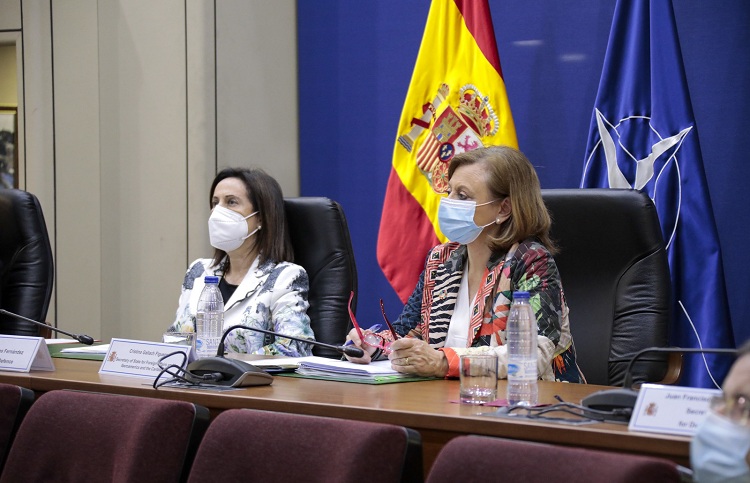The Diplomat
Spain will synchronize the withdrawal of its troops from Afghanistan with those of the United States and other allies once the Resolute Support mission, announced yesterday by NATO Defense and Foreign Ministers, is over.
This was announced by the Ministers of Foreign Affairs, Arancha González Laya, and of Defense, Margarita Robles, during their participation in an extraordinary meeting of NATO’s North Atlantic Council, in which the Ministers of Foreign Affairs and Defense of the Member States – including the U.S. Secretaries of State and Defense, Anthony Blinken and Lloyd Austin – discussed the mission’s withdrawal plan, which will coincide with the 20th anniversary of the September 11 attacks, and the momentum of the peace process in the Central Asian country following the peace agreement signed by the US with the Taliban on February 29.
The NATO mission Resolute Support, in charge of assisting, training and advising Afghan institutions and in which 13,000 military personnel from 42 countries have participated, replaced in December 2014 the International Security Assistance Force (ISAF), launched at the end of 2001 to support the interim government of Afghanistan. Spain was involved in these missions from the very beginning, initially participating in Operation Enduring Freedom with medical support, transport planes, ships and helicopters, and, subsequently, in ISAF, in which 29,000 military personnel from the three Armies and the Civil Guard took part, and in Resolute Support, in which Spain currently has just 24 troops in charge of advising and training the Afghan Security Forces and Corps.
During yesterday’s meeting, which was also attended by the Secretary of State for Foreign Affairs, Latin America and the Caribbean, Cristina Gallach, and the Chief of Defense Staff, Teodoro López Calderón, Margarita Robles assured that “the general lines of the withdrawal plan proposed by the United States offer sufficient margin to ensure that the democratic progress achieved in the country in terms of human rights, education and the welfare of women and children is consolidated”, while “preventing it from once again becoming a sanctuary for terrorist organizations”. For this reason, Robles assured that Spain will support a gradual, well-coordinated withdrawal process that guarantees security and supports the peace process, and announced that the Spanish Armed Forces will continue in Afghanistan for as long as necessary and in close coordination with our allies.
According to Robles, “the achievements made by the Afghan society in these 20 years have been possible thanks to NATO missions and the tireless perseverance and sacrifice of the allied Armed Forces”. For this reason, the Minister of Defense proposed to her NATO counterparts that “a future NATO-Afghanistan partnership agreement in the field of Security and Defense” be established to help consolidate progress. “This new NATO commitment would be the best tribute we can offer to the Afghan people and to the sacrifice of our soldiers”, she added.
For her part, Arancha Gonzalez Laya stressed that Spain “remains committed to peace, stability and the future of Afghanistan” and, therefore, “will continue to support the Afghan government and civil society to preserve the achievements made in recent years, particularly those relating to the rights of women and girls”. She also assured that the Spanish Embassy in Kabul will remain open.







